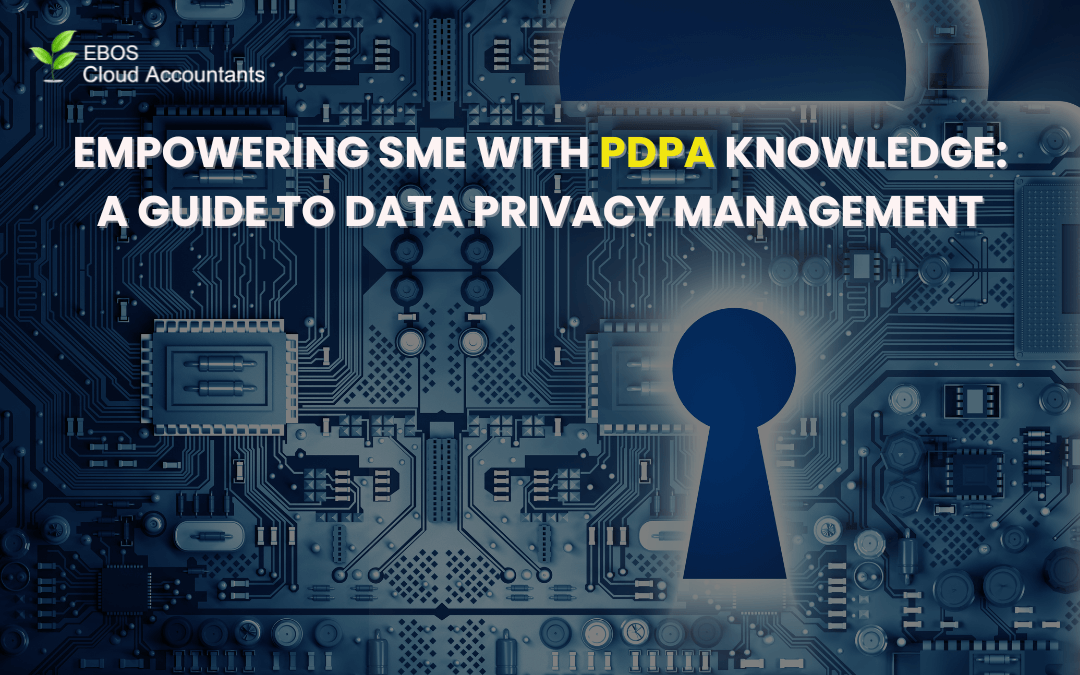In the current digital era, data is an essential resource for companies of all kinds. Leveraging consumer data can help Small and Medium Enterprises (SMEs) develop and improve customer experiences. But this also means that there is a need to safeguard personal information. Organizations are given a framework for managing and safeguarding personal data by the Personal Data Protection Act (PDPA). For SMEs to foster confidence and stay out of legal hot water, they must comprehend and abide by PDPA. The purpose of this handbook is to arm SMEs with the information necessary for efficient data privacy management.
Understanding PDPA and Its Importance for SMEs
The purpose of the PDPA is to protect people’s personal information from abuse and illegal access. It provides guidelines for gathering, using, and disclosing personal data, ensuring that businesses manage this information appropriately. For small and medium-sized businesses, adhering to the PDPA is not only about avoiding fines but also building credibility and confidence with clients. SME differentiation from competitors can be achieved by showcasing a commitment to data privacy, particularly in areas where customers are becoming more worried about data security.
Key Principles of PDPA
Prior to delving into how SMEs can adhere to PDPA, it’s critical to comprehend its guiding principles:
- Consent: Before collecting, using, or revealing an individual’s personal data, organizations are required to get the individual’s explicit and informed consent.
- Purpose Limitation: Personal information should only be gathered for explicit, legal purposes. It should never be used for other purposes without additional authorization.
- Notification: People need to know why their data is being collected and what will be done with it.
- Data Accuracy: Insofar as it is required for the purposes for which it is used, personal data must be accurate and maintained current.
- Data Security: To guard against unauthorized access, collection, usage, disclosure, and other threats, sufficient security measures must be in place.
- Access and Correction: People are entitled to see and update the personal information that is kept on them by a company.
- Retention Limitation: No personal information should be kept on file for longer than is required to fulfill the intended use.
- Accountability: It is the responsibility of organizations to demonstrate and adhere to PDPA compliance.
Steps for SMEs to Comply with PDPA
- Develop a Data Protection Policy: Create a thorough data protection strategy that describes how your small and medium-sized business (SME) gathers, utilizes, retains, and discards personal information. Customers should be able to access this policy and all workers should be informed about it.
- Appoint a Data Protection Officer (DPO): Appoint a Data Protection Officer to supervise adherence to the PDPA. The DPO should function as the point of contact for any data protection issues and be well-versed in PDPA regulations.
- Conduct a Data Inventory and Audit: Determine and record the kinds of personal information that your small business gathers, where it is kept, and how it is used. This audit aids in recognizing any hazards and comprehending the data flow.
- Obtain Consent and Provide Notifications: Make sure you have individuals’ explicit and knowledgeable consent prior to gathering their personal information. Notify them about the reason behind data gathering and its intended usage.
- Implement Data Security Measures: Invest in data security tools and procedures like firewalls, access controls, and encryption. To handle new security threats, evaluate and update these procedures on a regular basis.
- Establish Data Access and Correction Procedures: Establish processes that let people see and update their personal information. Make ensuring that requests are fulfilled in a timely manner and in accordance with PDPA.
- Develop a Data Breach Response Plan: Establish a reaction strategy to efficiently handle data breaches. This strategy should outline how to stop the breach, evaluate its effects, and alert the authorities and impacted parties.
- Train Employees on Data Protection: Employees should get frequent training on PDPA compliance and data protection procedures. Workers need to be aware of their responsibility to protect personal information and the repercussions of breaking the law.
- Review and Update Data Retention Practices: Make sure your personal data is not being kept longer than necessary by reviewing it on a regular basis. Establish protocols for safely discarding data that is no longer required.
- Monitor and Audit Compliance: Regularly check and audit your SME’s PDPA compliance. This entails evaluating data protection procedures, finding any weaknesses, and implementing the required fixes.
Benefits of PDPA Compliance for SMEs
Complying with PDPA offers several benefits for SMEs:
- Enhanced Customer Trust: Small and medium-sized businesses (SMEs) can enhance their client connections and win their trust by showcasing their dedication to data protection.
- Reduced Legal Risks: SMEs that comply with PDPA are shielded from fines and the harm to their brand that comes with data breaches.
- Competitive Advantage: Being PDPA-compliant can give SMEs an advantage in a market where consumers respect data privacy.
- Improved Data Management: Putting PDPA concepts into practice promotes improved data management techniques, which result in data handling that is more secure and efficient.
Conclusion
In addition to being required by law, PDPA compliance offers SMEs a chance to improve their market position and foster trust. SMEs may guarantee the responsible management of personal data, safeguard consumer privacy, and improve their reputation by comprehending and putting into practice the essential PDPA principles. In today’s data-driven business world, arming your SME with PDPA expertise and implementing efficient data privacy management policies is a calculated move that can pay off in the long run.
Check out our website at https://ebos-sg.com/ to explore more articles and discover how our Cloud Accountant Services can support you on your business.







